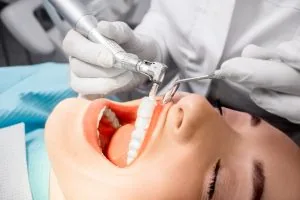
The recent death of a teenager during a common surgical procedure has prompted a national conversation about the removal of wisdom teeth (third molars). Hypoxia from oxygen deprivation is rare, but surgery always carries serious risks.
Can You Die from Wisdom Teeth Removal?
Dental extraction is a minor procedure according to ACC/AHA guidelines, with a risk of death or nonfatal myocardial infarction below 1%.
The risk of death during wisdom teeth removal is extremely low but possible. Wisdom teeth removal is a common and generally safe surgical procedure. According to the American Association for Oral and Maxillofacial Surgeons, the risk of death is approximately 1 in 365,534 procedures, primarily due to anesthesia complications. Common risks of wisdom teeth removal are infection, nerve damage, and dry socket.
Ten million wisdom teeth are extracted in the U.S. each year. While wisdom tooth removal is undoubtedly necessary for some people, many oral surgeons advocate for the removal of the third molars to prevent potential future infections or tooth damage. Yet, studies suggest that less than 12% of wisdom tooth impactions lead to infections or damage to adjacent teeth. For comparison, about 1 in 15 people will get appendicitis – but no medical associations recommend preventative appendectomies.
For most of us, wisdom tooth removal – regardless of its necessity – is a week or two of pain and discomfort. Many people believe that because getting one’s wisdom teeth out is common, it is safe. In most cases, patients are given unsubstantiated information that might, in some circumstances, invalidate their informed consent of the potential risks of the surgery. Dr. Jay Friedman wrote in the American Journal of Public Health:
“At least two thirds of these extractions, associated costs, and injuries are unnecessary, constituting a silent epidemic of [dentist-induced] injury that afflicts tens of thousands of people with lifelong discomfort and disability,” See the full text of his article: The Prophylactic Extraction of Third Molars: A Public Health Hazard.
Dangers in wisdom tooth removal
- Risks and potential complications of anesthesia, including heart attack or stroke
- Infection in the extraction site or subsequent stitches
- Lingual nerve damage, which can result in permanent numbness, loss of taste, and other mouth and tongue problems (read more about lingual nerve damage here)
- “Dry socket”, a painful inflammation in the extraction site
- Permanent loss of feeling in the lip, tongue, or cheek which never goes away, ranging from complete numbness to “pins and needles” comparable to when your foot or hand falls asleep
- Bone splinters or root fragments can be left behind in the gum tissue
- Jaw fracture can occur if the surgeon removes part of the bone to access the impacted tooth
- Damage to existing dental work or to the structures of adjacent teeth
Prepare for wisdom tooth removal by learning the procedure and reviewing your Oregon provider’s experience and record.
Update: April 5, 2012- TODAY has featured the story of the Maryland teen who died last year during a routine wisdom tooth removal.
